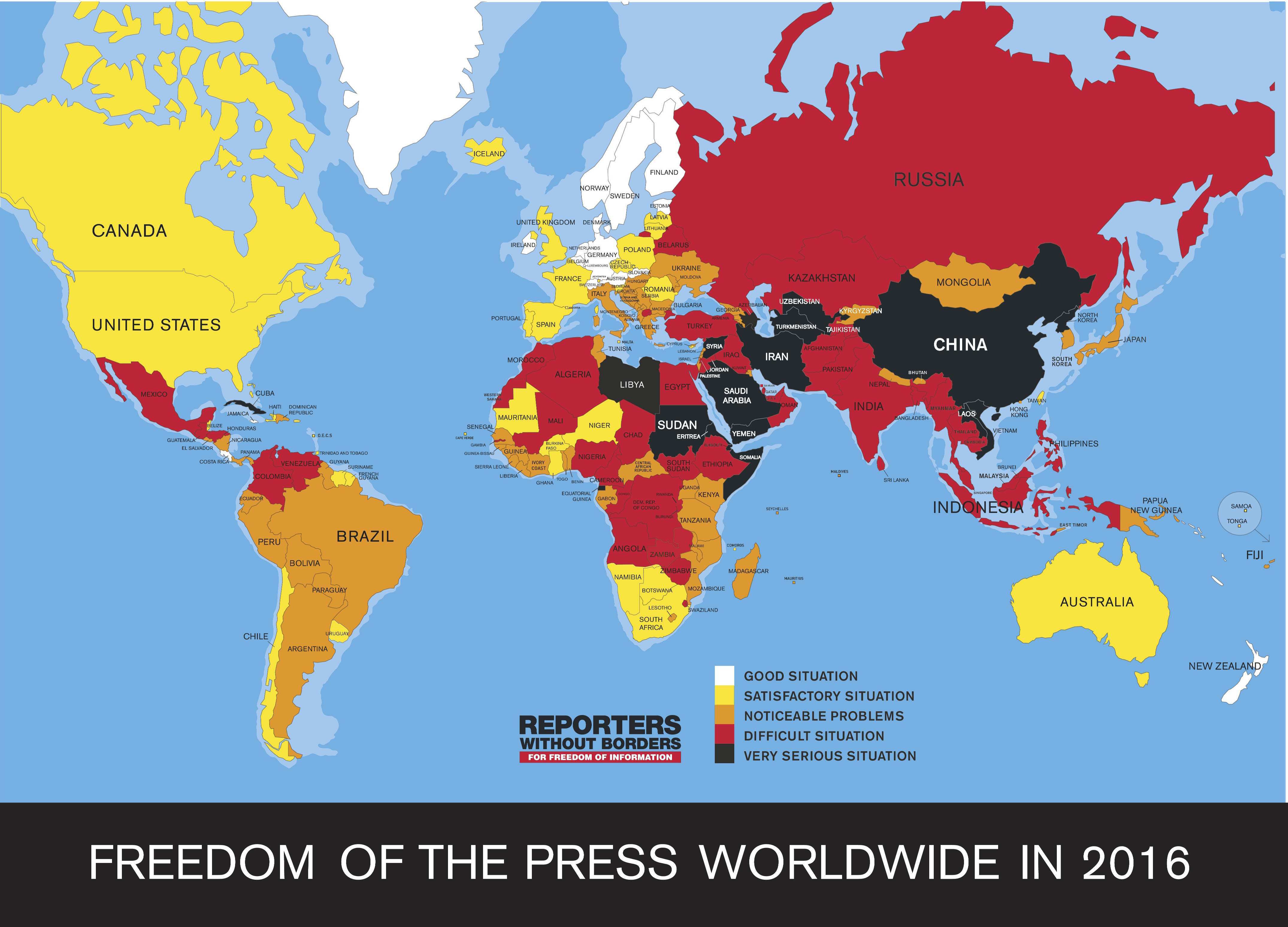
PARIS (Reporters Without Borders / Pacific Media Watch): Reporters Without Borders (RSF) is saddened to report that at least 74 professional and non-professional journalists have been killed in connection with their work in 2016.
Some were killed while out reporting. Most were clearly the deliberately targeted victims of deadly violence.
This is fewer than in 2015, when 101 journalists were killed. But the fall is not encouraging because it is due largely to the fact many journalists have fled countries that became too dangerous, especially Syria, Iraq, Libya, Yemen, Afghanistan and Burundi.
These exoduses have created news and information black holes where impunity reigns.
The fall is also the result of the terror imposed by press freedom predators who close media outlets arbitrarily and gag journalists. Regardless of their courage, journalists in countries such as Mexico censor themselves in an attempt to avoid being murdered. Of countries not at war, Mexico was the deadliest for journalists in 2016, with a total of nine killed*.
Worldwide, nearly three quarters of the journalists killed in 2016 were deliberately murdered. In Afghanistan, all of the ten journalists who were killed this year were deliberately targeted because of their profession. Seven of them died in a suicide attack in January on a minibus used by privately-owned Tolo TV, an attack claimed by the Taliban.
Journalists were also hunted down and slain in Yemen.
RSF condemns the impunity enjoyed by those who murder journalists and the complicit lack of action by many governments that are often only too ready themselves to trample on media freedom.
“The violence against journalists is more and more deliberate,” RSF secretary-general Christophe Deloire said. “They are clearly being targeted and murdered because they are journalists.
"This alarming situation reflects the glaring failure of the international initiatives aimed at protecting them, and is a death warrant for independent reporting in those areas where all possible means are used to impose censorship and propaganda, especially by fundamentalist groups in the Middle East.
"So that international law can be enforced, the UN must establish a concrete mechanism for implementing resolutions. With the arrival of a new UN secretary-general, Antonio Guterres, a special representative for the protection of journalists must be appointed as a matter of urgency.”
Syria continues to be the world’s deadliest place for journalists, followed by Afghanistan. Worldwide, two thirds of the journalists killed this year were in war zones. Almost all of them were local journalists, now that news organisations are increasingly reluctant to send their reporters to dangerous hotspots abroad.
Full RSF 2016 round-up report
*Figure for the period 1 January to 10 December 2016
This work is licensed under a Creative Commons Attribution-NonCommercial 3




